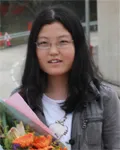Outage Performance of Dual-Hop Fading Relay Channels
Dr. Ying Liu
Institut für Nachrichtentechnik
Technische Universität Darmstadt
Abstract:
Unlike wire-line networks, one primary challenge in wireless communication is the existence of fading, which may significantly attenuate the signal power seen at the receiver. This adverse effect of fading can be combated by using diversity techniques to transmit signals over multiple independent channels and coherently combining them at the receiver. In fading relay channels, cooperative communication, which is capable of creating diversity, has been an active research area over the past few decades. Whilst numerous results have been published, many fundamental questions still remain open, such as the characterization of the best possible outage performance of fading relay channels.
In general, the max-flow min-cut (MFMC) bound serves as an upper bound on the instantaneous capacity of relay channels. For a dual-hop fading relay channel of interest, the MFMC bound gives a lower bound on the outage probability of fading relay channels, which turns out to be sufficiently tight, and can be asymptotically achieved by some existing relay protocols. Despite the effectiveness of the bound, it typically does not admit closed-form expressions to allow for efficient calculation, and more importantly intuitive insights. Therefore, based on the MFMC bound, new closed-form lower bound expressions for the outage probability of the fading relay channel are derived and presented. Based on these results, the effects of power allocation and relay position are investigated.
This is a joint work with Dr. Prathapasinghe Dharmawansa (Stanford University) and Prof. Matthew R. McKay (HKUST).
Biography:
Ying Liu received her bachelor degree in Engineering from Beijing University of Posts and Telecommunications, Beijing, P. R. China, in 2008, and her Ph.D. degree in Electronic and Computer Engineering from The Hong Kong University of Science and Technology, Hong Kong, in 2013. Currently, she is a postdoctoral research associate with the Communication Systems Group led by Prof. Dr.-Ing. Marius Pesavento, Technische Universität Darmstadt. Her research interests include communications and signal processing; in particular cooperative communications in relay networks, wireless sensor networks, statistical signal processing, and MIMO techniques.
